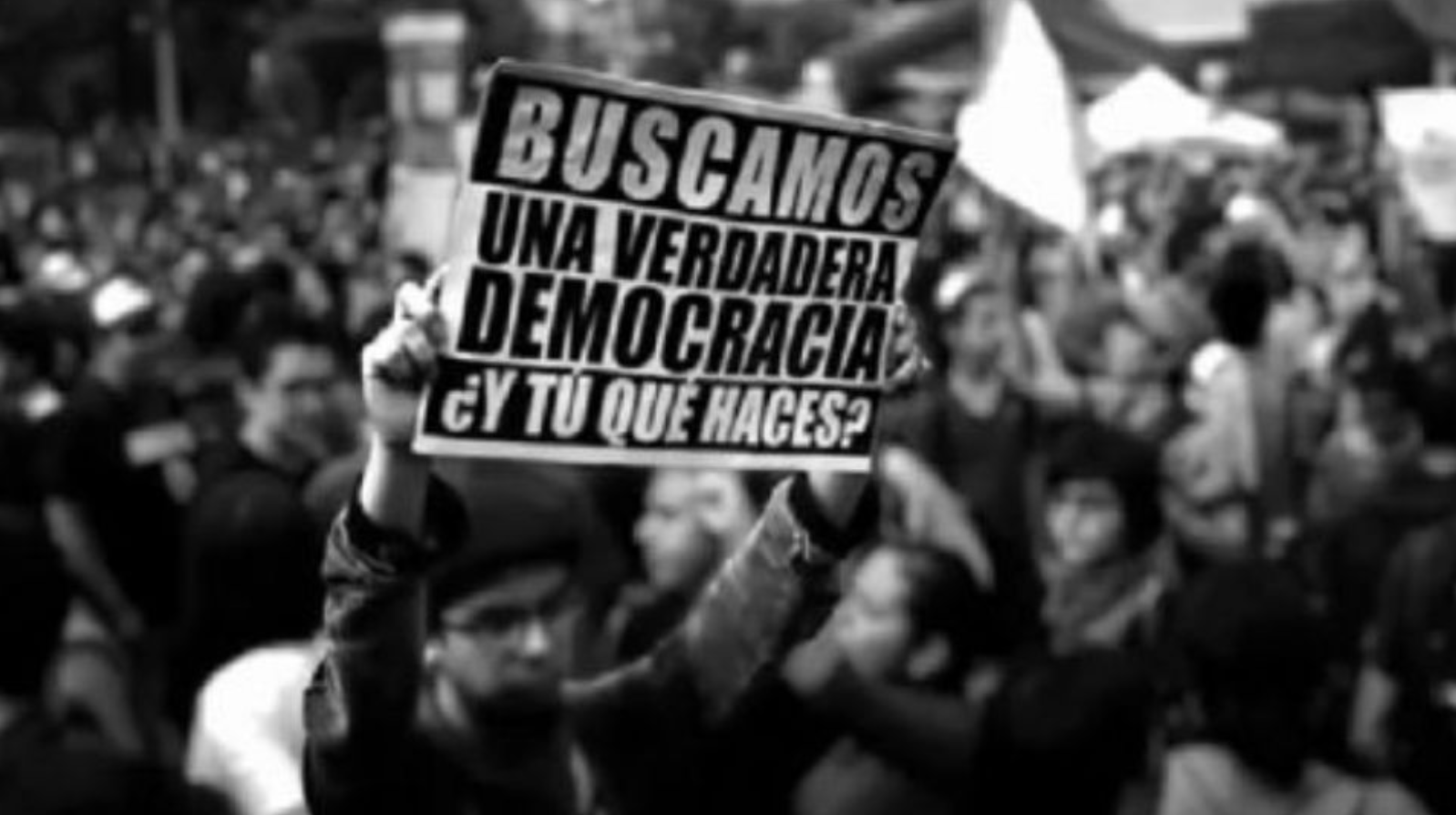To what extent can citizens develop democratic values if their daily lives are carried out in vertical and undemocratic contexts because of antonomasia? In the last months of 2022, politics in some countries of the region once again showed signs of instability. But, beyond the gravity, political crises are essentially of, and among political elites. The citizenry in general has little to do with them. However, the effects of such crises affect it considerably.
The most representative case is the crisis in Peru, with the failed attempt of Pedro Castillo to unconstitutionally dissolve the Congress, his following dismissal and the rise of Dina Boluarte. Thus, Peru has had six presidents in six years. Meanwhile, in Argentina, Vice President Cristina Fernandez, de facto leader of the ruling coalition, was sentenced to six years in prison for fraudulent administration and disqualified from holding public office for life. Although this does not necessarily mean her exit from political life, it is a sign of the beginning of the end of the Kirchner era.
In Brazil, the far-right that supports President Jair Bolsonaro took to the streets to disavow Luiz Inácio Lula da Silva’s narrow victory in the second round. Meanwhile, Bolsonaro refused to recognize the results until a month after the election, after no institution supported him, including the military sector.
In Mexico, Andrés Manuel López Obrador and his Morena party have implemented a series of formal and informal strategies to weaken the institutions that manage the elections. In a country where transition and democratization were essentially based on creating conditions of independence and impartiality in electoral management, attacking electoral bodies through the media and trying to modify their institutional structure without diagnosis and deliberation may put the viability of democracy at risk. Nevertheless, the seriousness of such processes, these crises have so far unfolded within institutional directions.
The crisis of democracy belongs to the elites
The sometimes laconic lamentations about the deterioration of democracy in the region are based on a narrow conception of democracy. Competitions between party elites take place in institutional contexts with free and fair elections. However, political parties are increasingly dependent on state resources and less on their militants, while representatives are more concerned with their own group agendas than with issues affecting society. And the executive powers are increasingly more responsive to the factual powers than to the citizens.
Therefore, the crises of democracy are crises of the elites. Most people are only spectators since their daily lives unfold in contexts that have little or nothing to do with politics and democracy. In addition to the permanent distrust in politicians, the complexity of institutional systems distances citizens from politics, which they see as a foreign activity. According to Latinobarómetro, in 2020 more than 70% of people had little or no interest in politics.
Unorthodox solutions to the crisis of democracy
Analyses of democracies have focused on institutional aspects, relations between established formal powers, and the dynamics of party and electoral systems, among other aspects. But very little attention has been paid to the relationship between political practices and the everyday environments of citizens, and their relations and perceptions of the components of democracy.
In 1977, the report of the committee of inquiry on industrial democracy, known as the “Bullock Report”, was published in England. It analyzed the state of companies in that country, the process of unionization of workers and their rights of participation in companies. Published more than forty years ago, the report brought the matter of industrial democracy to the forefront. It marked the beginning of many experiences of union democracy and relations between economic sectors in several European countries, such as Sweden and Germany.
The report pointed out that a democratic-representative political system can only function efficiently if democratic practices are also fostered in vertical structures such as industries and companies. Industrial democracy refers to the possibilities for workers to influence, formally and informally, directly and indirectly, the course of processes within a company, including not only union leadership, but also organizational dynamics and even outputs.
In the 21st century, companies dedicated to new technologies (but not only these) define to a large extent the future of many political and social processes. Companies such as Apple, Microsoft, Google, Tencent, Facebook, and IBM have an impact on the world economy that now accounts for almost 40% of all transactions, and e-commerce accounts for 5% of the world’s GDP. This is the everyday world of millions of people, and in the face of a new world, we must think of new forms of democracy.
Stopping the deterioration implies ceasing to artificially maintain the institutions that shaped it in the twentieth century, but which no longer work. It implies changing them or replacing them with others that are adapted to this new world that has little to do with the one of a few decades ago. Introducing democratic practices into everyday vertical relations is not an easy task and can be counterproductive if it is not done well. However, all mechanisms that allow citizens to see concordance between their daily lives and politics in the institutions can improve the quality of democracy and bring it closer to politics.
To make less bureaucratize democracy is fundamental. But even the mechanisms of direct democracy that pretend to solve the crisis of democracy often end up deepening it. They can be manipulated by the elites, as happened with the failed constituent process in Chile, or with the instrumental use that the elites have given to referendums and plebiscites.
If we want to save democracy, we must build democratic citizenship. Otherwise, we will remain at the mercy of political elites who easily succumb to authoritarian temptations.
*Translated from Spanish by Camille Henry











